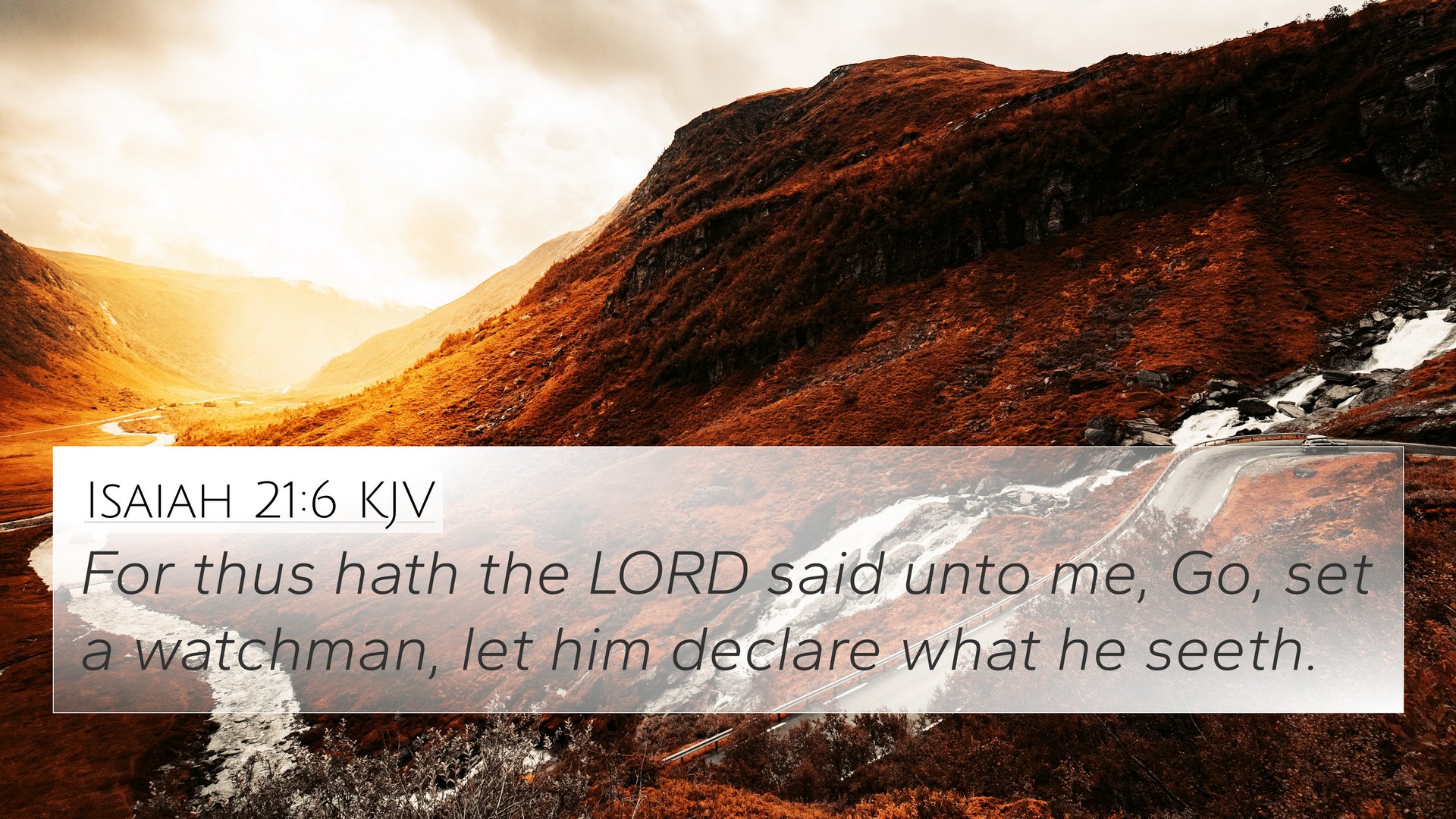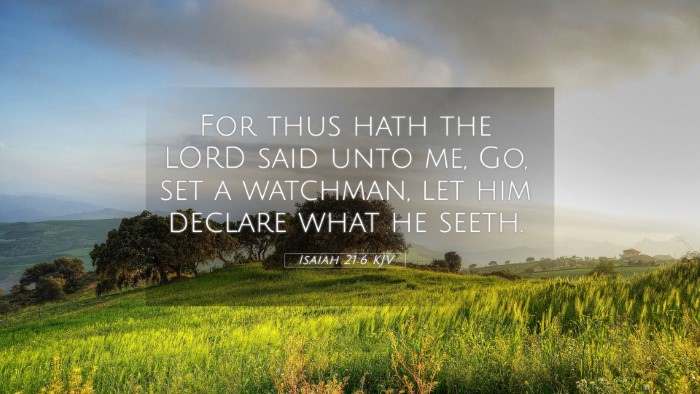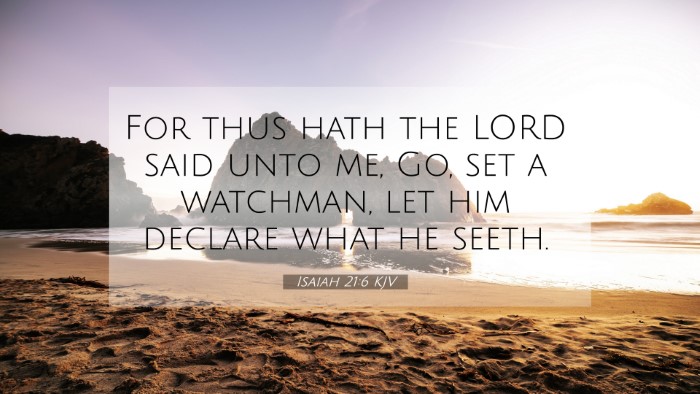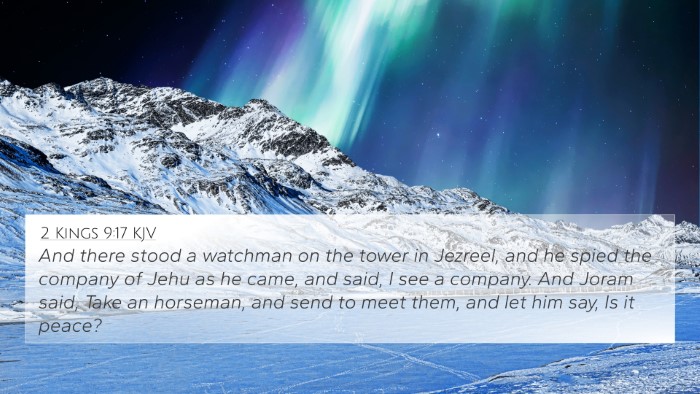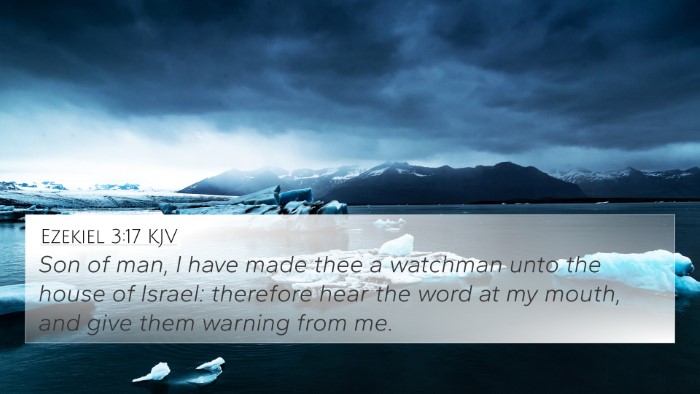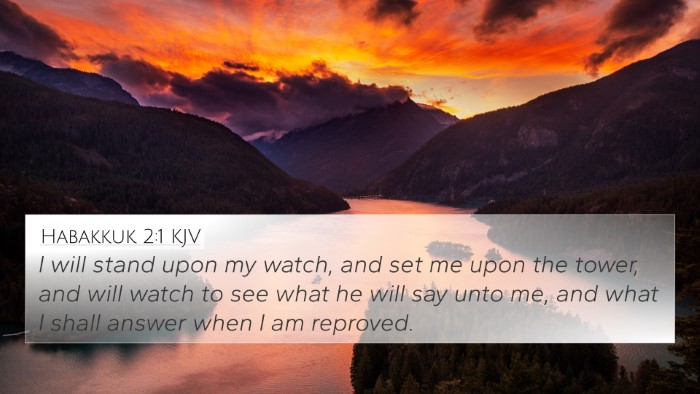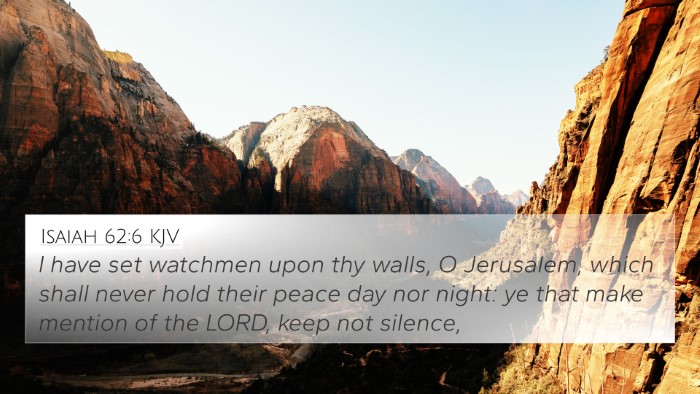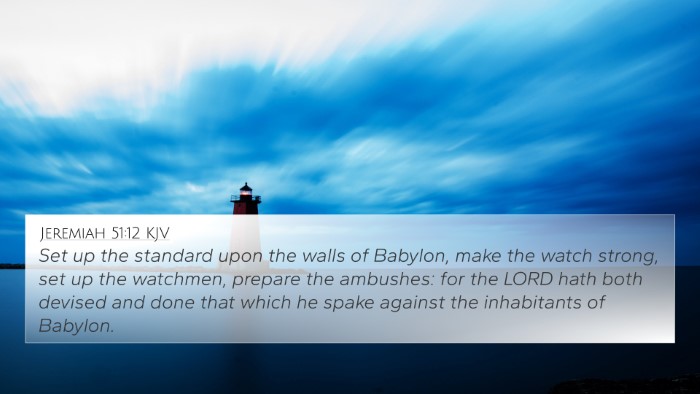Understanding Isaiah 21:6
Verse: Isaiah 21:6 - "For thus hath the Lord said unto me, Go, set a watchman: let him declare what he seeth."
Summary of Meaning
The verse Isaiah 21:6 portrays a divine command to appoint a watchman to observe and report on what he sees. This reflects the role of a prophet or a spiritual leader in warning and guiding the people based on revelations from God. The watchman symbolizes vigilance and the need for discernment in interpreting what is happening in the world through a spiritual lens.
Insights from Commentators
- Matthew Henry: Henry speaks about the significance of the watchman as one who is watchful and alert, called to proclaim God's messages. He emphasizes the responsibility of being aware of spiritual and worldly events and sharing insights with the community, reinforcing the importance of preparation for impending judgments.
- Albert Barnes: Barnes notes that the role of the watchman is crucial for proclaiming warnings regarding impending dangers as well as share the light of God’s truth. His commentary stresses the imperative for a clear vision and communication from the watchman, which serves as a reminder for us to heed God's voice in our lives.
- Adam Clarke: Clarke discusses the prophetic nature of the watchman's duty. He points out that the watchman must not only see but also accurately relay what he observes. His insights reinforce the idea that understanding comes from God, guiding interpreters to recognize and report the truth of God's plans and intentions.
Cross-References to Isaiah 21:6
Isaiah 21:6 resonates with several other scriptures that reveal the interconnectedness of biblical themes. Here are 10 relevant cross-references:
- Jeremiah 6:17: God appoints watchmen to give warning to His people.
- Ezekiel 3:17: The role of the watchman is reiterated, emphasizing the duty to warn the wicked.
- Habakkuk 2:1: The prophet stands upon his watch to see what the Lord says.
- Isaiah 56:10: Refers to watchmen who are blind and unable to warn, highlighting the need for vigilance.
- Matthew 24:42: Jesus exhorts watchfulness in preparation for His return.
- 1 Thessalonians 5:6: Encourages believers to be alert and sober, echoing the watchman's vigilance.
- Revelation 3:2: A call to wake up and strengthen what remains, akin to a watchman’s role.
- Isaiah 62:6: God positions watchmen as constant intercessors on behalf of His people.
- Proverbs 8:34: Blessed is he who watches daily by God’s gates, indicating the importance of this vigilance.
- Luke 21:36: Jesus instructs His followers to stay awake and pray, reinforcing the thematic nature of vigilance.
Thematic Connections
Isaiah 21:6 can be placed in a broader theological context that highlights several key themes:
- Prophecy and Revelation: The prophetic role is vital, signifying that God communicates His plans and expectations to His people.
- Vigilance and Responsibility: Believers are called to be spiritually aware, responsible for discerning and sharing God’s message.
- Warning and Judgment: The mention of declaring what one sees relates closely to the themes of judgment found throughout the prophetic books.
- Divine Authority: The command to set watchmen indicates God’s sovereignty in guiding humanity through alerts and guidance.
Practical Application
For those studying Isaiah 21:6, it is essential to reflect on:
- Personal Vigilance: How can we act as 'watchmen' in our communities today?
- Spiritual Discernment: What practices can help us sharpen our ability to discern God's voice amid chaos?
- Community Role: How can we encourage one another to be alert and responsive to God’s messages in Scripture?
Conclusion
Isaiah 21:6 serves as a reminder of the critical role of the watchman, urging believers to cultivate vigilance, awareness, and a commitment to proclaiming divine truth. The interconnectedness of biblical passages enhances our understanding of God's ongoing dialogue with humanity, showcasing the vital importance of being spiritually attuned to God’s communication today.
